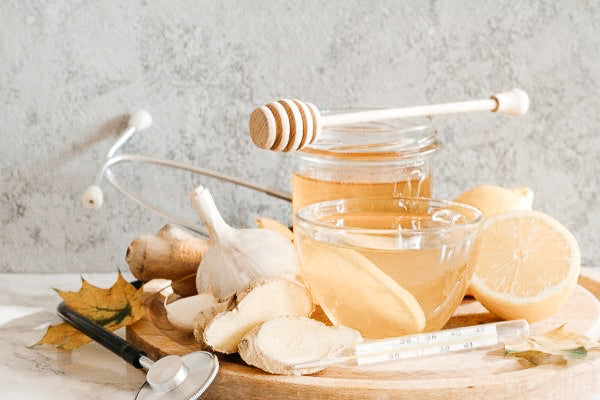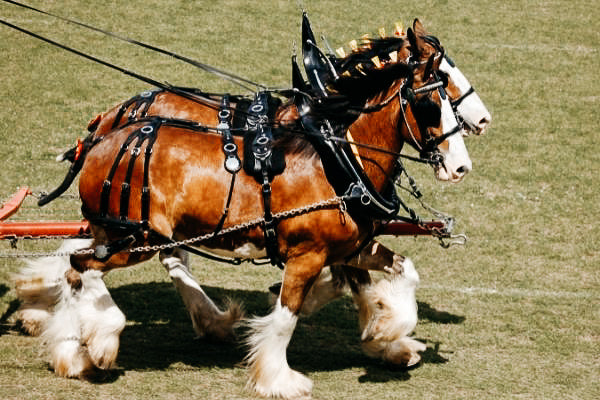
Home remedies for horses
Keeping a horse requires care, time and, above all, money. This makes home remedies for horses all the more useful because they can prevent expensive medications from minor aches and pains. In fact, there are dozens of remedies that can benefit the horse in the event of a horse illness. But - and this is even more important, not everything that helps us humans is also the right choice for four-legged friends. So watch out! If in doubt, the advice of a veterinarian or alternative practitioner is the more sensible approach. Important motto:
It is better to eliminate the causes rather than just combat the symptoms!
Simple definition: You should initially ask yourself why your horse is coughing, what it could be reacting to with fecal water or why its coat no longer has a velvety shine.
What is suitable for your horse?
Malt beer as a pick-me-up and garlic against flies - what's the truth in our grandfathers' advice? Are there any useful home recipes, or is everything nonsense?
Well, apart from reading Bible verses and burning frogs (from the 17th century). Handed down in the 19th century), some home remedies for horses can really be of great help. The following are definitely useful for your horse's stable medicine cabinet.
Home remedies no. 1: Brewer's yeast and malt beer
The second, in small quantities, can definitely help an emaciated horse gain more appetite. The sweet taste including the scent of yeast is very stimulating. However, pure beer should not be used when feeding horses. Horses cannot tolerate alcohol and can even suffer damage to their health as a result.
It is better to go to the original plant of the beer. The hops. You can get dried cones at the pharmacy. This can be used to make a nice “tea brew” which, thanks to its bitter substances, stimulates the horse’s bile production. Hops also have a calming effect.
A useful addition can be brewer's yeast for the horse. The valuable ingredients (biotin & B vitamins) positively stimulate digestion and metabolism. A great supplement administered over and over again. Fur, hooves and organism benefit from it. Brewer's yeast gives your horse a good boost of health.
Home remedies no. 2: Oil
Oil is hotly debated. A horse does not have a gallbladder and is therefore said to be less able to digest oil.
In fact, oil is also an ingredient in the feeding. Oats, seeds and even grass contain oil. This is a not unimportant source of energy for your horse.
The energy and calorie boost is particularly suitable for older or emaciated horses. So it can be quite beneficial after a long horse illness. Pay attention to the dosage! A shot glass (e.g. b linseed oil) early in the feed and one in the evening are a good indication. Better less than too much!
Home remedies no. 3: The Onion
Who doesn't know onion broth from their youth? A tried and tested, expectorant and antibacterial home remedy for coughs. Onions are chopped into small pieces, covered with honey and left to stand overnight. The decoction can be taken/fed the following day.
Unfortunately, the large proportion of honey is not that beneficial for our horses. Horseradish would be interesting as an alternative to onion soup. Gently grated and added to the softened hay and black cumin cobs, your horse gets a delicious, natural cough cocktail. Extra tip: Inhaling is not just good for us humans. With saline solution, a nebulizer and a nasal mask for horses, stubborn coughs can be quickly put to rest.
Home remedies no. 4: Honey
Everyone loves sweet gold. But this sugar is better for horses if it is only used externally. Honey contains anti-inflammatory substances and antioxidants.
Therefore, the best conditions for stimulating the tissue cells in smaller wounds, killing miracle pathogens and ultimately promoting healing. Medical honey (pharmacy) is the right choice for this. A great home remedy for the horse's stable medicine cabinet.
Home remedies no. 5: Garlic
Actually a home remedy for horses with a profitable effect. Because: buzzing pests don't like the smell at all. They spurn the exhalations of the powerfully fragrant tuber.
Again, you should not overdose when feeding, as garlic thins the blood. In small quantities (e.g. b as powder or a few crushed garlic cloves) but completely ok.
Fly spray tip:
Make a hot brew of finely chopped garlic, cloves, black tea and lavender flowers.
When cooled, pour it through a sieve into a spray bottle, add water and a few drops of tea tree oil and apple cider vinegar.
Do not use on mold - it stains!
Home remedies no. 6: Psyllium
These little "bitches" are the number one home remedy, especially for horse feces. 1 They quickly bind fluid, line the intestinal wall and can even remove impurities. But, as is so often the case, it's the quantity that counts. You should use it sparingly (the seed thickens enormously!) and only use it as a treatment similar to brewer's yeast for the horse. Continuous feeding would be counterproductive.
If you have water in your horse's feces, home remedies may not be the final solution. As mentioned above, research needs to be done. Is there a horse disease? Is the hay of good quality? Is my horse stressed?
Home remedies no. 7: Marigold or chamomile tea
Helps with inflammation internally and externally. Wound healing is optimally supported. Of course, the amount of dried flower matter is significantly higher in horses.
A home remedy for horses that is easy to make yourself.
Home remedies no. 8: Healing clay
The same applies here: it can be used internally or externally. A little earth powder mixed in water, mash or tea can rid your horse's intestines of toxins and pollutants.
Externally, the mixed healing clay can help with superficial wounds or tendon problems. The thickened paste is easy to apply and holds well. There are even pre-made pastes in a tube. A must when thinking about home remedies for horses.
Additional tip: A comfrey compress can also reduce the swelling of tendons.
Home remedies no. 9: Apple Cider Vinegar
It is cheap and a real all-rounder. When diluted with water, it can be used externally to drive away bacteria, fungi, itching and flying pests.
A small A glass of vinegar (as a treatment) in the feed supports your horse's immune system.
Note:
If your pet is suffering from a serious horse illness, home remedies are simply not sufficient. Correspondence with a veterinarian you trust is then essential and absolutely the right thing to do.
Discover more posts

Trotters – fast racehorses with a wide range of talent
It's impressive what trotters, including the sulky and driver, can do in horse racing. They give everything and reach 45 - 50 km/h at a trot. Some of our private horses can't even do this at a...
Continue reading
The Shire Horse – a mighty colossus and a visual treat
What a caliber! What power! The well-known Shire Horse is clearly the giant among our horse breeds and is without question impressive. This beautiful draft horse not only adorns numerous eques...
Continue reading
